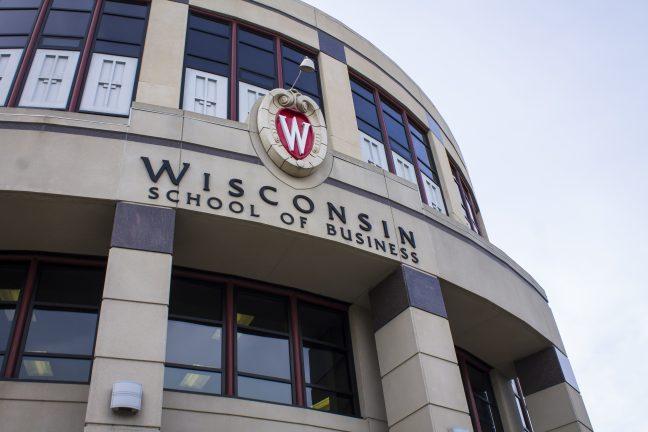University of Wisconsin School of Business won a grant to study how to improve the entrepreneurial ecosystems surrounding UW students and develop methods to build more fertile environments for new businesses started at universities.
Executive Director of the Weinert Center for Entrepreneurship Jon Eckhardt was awarded funding from the Ewing Marion Kauffman Foundation, a nonpartisan foundation that supports entrepreneurship and education nationwide, according to a statement.
Since he started managing the Weinert Center seven years ago, Eckhardt said enrollment has gone up dramatically. Each year 1,700 students enroll in courses at the center, with 80 percent in majors outside of the Business School.
Despite the increased enrollment, Eckhardt said there are still largely untapped populations at the university who have the potential to start new businesses. When Eckhardt discovered a surprising amount of entrepreneurial activity among the student body and faculty using a rigorous data initiative developed in 2015, the Weinert Center started targeting specific students through emails and meetings to inform them about its courses.
“At a campus as large as the UW, there’s a lot of opportunity on our campus that often can be difficult to find,” Eckhardt said. “We’re basically trying to come to the students and track them down and help them find us.”
A Wisconsin Alumni Association survey in 2015 found 2,451 UW alums who responded had started their own businesses, with more than 600 respondents founding more than one company. Among 2,500 startups, 808 were in Wisconsin. Some of these companies, like EPIC Systems and its nearly 10,000 employees stationed in the suburbs of Madison, anchor substantial economic activity for the state, Eckhardt said.
But Wisconsin has ranked last in business startup activity for three years straight, according to the Milwaukee Journal Sentinel. The data comes from Kauffman Foundation’s studies, which also provided Eckhardt with the grant.
To help entrepreneurial talent within the state and draw in outside investment, treasurer of the Wisconsin Business Innovation Association and director of the Innovation Center at UW-Whitewater Mark Johnson said the state has built up a strong network of organizations.
“Wisconsin has a plethora of outstanding entrepreneur support organizations … if an entrepreneur can’t find support in the state of Wisconsin, they’re not trying hard enough,” Johnson said.
Johnson said organizations like the Wisconsin Economic Development Corporation and the Wisconsin Women’s Business Initiative Corporation provide funding and connections for entrepreneurs looking to turn their ideas or nascent businesses into full-fledged companies.
Mike Kersels, the founder of a “software as a service company” and member of 100state, a coworking space in Madison, said Madison is just emerging as a tech city.
Kersels moved his company from Texas to an incubator in Silicon Valley to access the high tech resources available there but decided seven years ago to move to Madison, where property is cheaper. To rent a desk in Santa Clara similar to the one he rents at 100state in Madison would cost him four times as much.
Mostly due to cheaper property values but also because of the city’s character, Kersels said he doesn’t see himself ever leaving Madison.
“I see a lot of parallels to Portland of the late 70s and early 80s when Intel started making their presence there when some of the early adopters of tech started to move in,” Kersels said. “I just hope we grow smart.”
Seven years ago when he would fly out of Dane County Regional Airport every week for business, Kersels said it was just him and the folks from EPIC Systems. Now, the flights are consistently sold out and the airport has had to expand its routes, including a straight flight to San Francisco that will be added in June.
The UW System has an awareness of the importance of entrepreneurs and has developed an ecosystem of its own, Johnson said. Through a statewide network of Small Business Development Centers located within UW schools, for instance, students, faculty and community members can access free, professional business consultants and classes.
The world of entrepreneurial support for UW students is much different than the world available to students 10 years ago, Eckhardt said.
The Wisconsin Alumni Research Foundation has grown to be a significant resource for funding the ideas, businesses and products of UW faculty, Eckhardt said. This year, WARF provided $100 million in grants, according to its website.
Many new initiatives, like Discovery to Product, a partnership between UW and WARF which helps bring UW technology to the market, and MadVentures, a student coworking space for student companies, have only recently cropped up.
“There’s a whole ecosystem now that has really arisen that is available for students and people who are tied to the university once they hit the right level,” Eckhardt said. “The city itself has really evolved quite dramatically and it has really helped bring in a fair amount of capital from the outside and draw a fair amount of attention to Madison and the state.”


